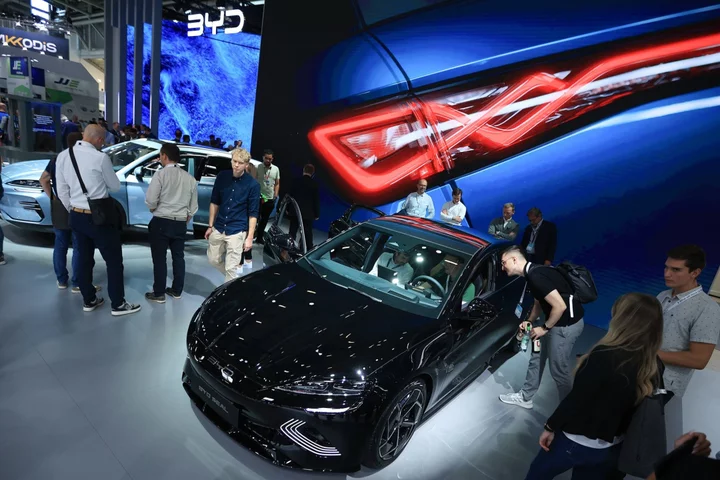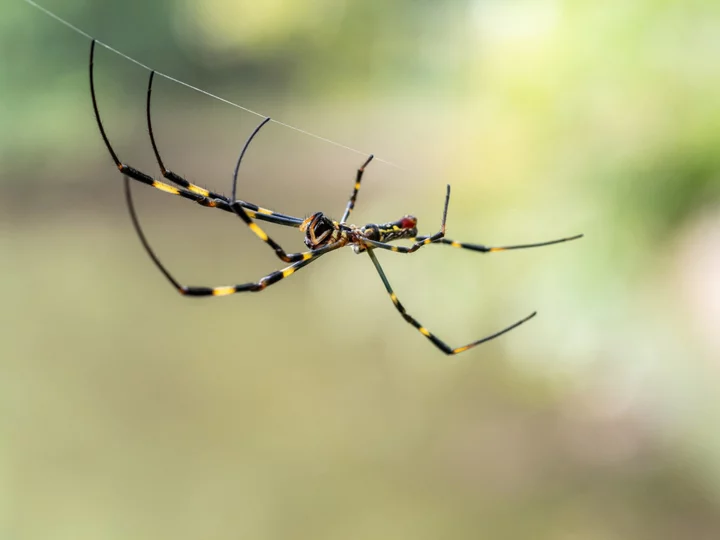The European Union has formally launched an anti-subsidies probe into electric vehicles manufactured in China, setting in motion a one-year investigation that could see provisional measures such as countervailing duties imposed in the next nine months.
The probe, which was announced by European Commission President Ursula von der Leyen last month, will focus on new battery-powered electric vehicles (BEVs) and alleged subsidies granted by the Chinese state, a legal notice in the EU’s official journal confirmed Wednesday.
Though narrow in scope, the investigation focuses on a major global industry that has seen a massive rise in exports from China in recent years. Despite concerns in various sectors that Beijing could retaliate, the EU wants to act now given the precedent in other subsidized industries such as solar panels.
Read more: Tesla’s China Exports in Crosshairs of EU Anti-Subsidy Probe
The notice says that the commission has gathered enough evidence to show that the carmakers have benefited from subsidies granted by the Chinese government. “Those subsidies have allowed the subsidized imports to rapidly increase their market share in the EU to the detriment of the Union industry,” it adds.
The support includes the direct transfer of funds, government revenue that hasn’t been collected and government provision of goods or services for less than adequate remuneration. The notice highlights evidence of “various grants, provision of loans, export credits and credit lines provided by State-owned banks or bonds underwritten by State-owned banks and other financial institutions at preferential terms.”
It also mentions income tax reductions and exemptions, as well as “dividend tax exemption, import and export tax rebates; VAT exemptions and rebates; and government provision of goods (such as raw and input materials as well as components).”
The investigation will focus on new BEVs designed to carry nine people or less, including the driver. The notice doesn’t name specific producers, but the probe will focus on all manufacturers in China that export to the EU, including Tesla Inc. and major Chinese brands such as BYD Co., SAIC Motor Corp. and Nio Inc.
Why Europe Is Pushing Back Against Chinese EV Influx: QuickTake
China described the investigation as solely based on assumption and lacking sufficient evidence, according to a statement from the Ministry of Commerce on Wednesday. Beijing expressed strong dissatisfaction with the move, which it said will seriously disrupt the global automotive supply chain and have a negative impact on China-EU economic relations.
“China’s electric vehicle market is a very competitive market, and it is by no means supported and protected by subsidies,” the China Association of Automobile Manufacturers said in a statement on Wednesday. China produces high-quality, low-price cars with technology innovation and accumulated advantages of a complete supply chain, the China Chamber of Commerce for Import and Export of Machinery and Electronic Products said in a separate statement.
The probe covers the period from Oct. 1 2022 to Sept. 30 2023 and the assessment of injury and countervailing measures will cover the period from Jan. 1 2020 until the end of the investigation.
Any countervailing measures would depend on the level of subsidization that is determined and the extent to which that has undercut manufacturers in Europe. In recent probes of other sectors such as e-bikes and fiber-optic cables, the EU discovered subsidy margins ranging from 4% to 17%, Bloomberg previously reported.
As part of the probe, the EU will be looking to gather evidence and testimony from all relevant parties, the notice said.
--With assistance from Felix Tam, Evelyn Yu and Li Liu.
(Updates with industry responses in 9th paragraph)









